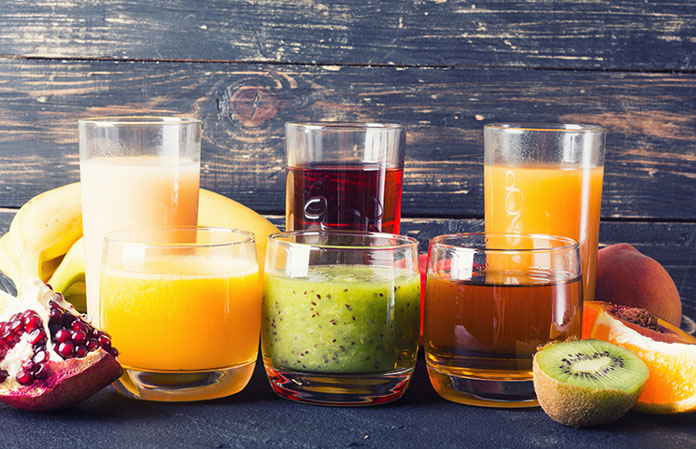In traditional medicine of century’s past, the primary restorative of choice was not necessarily food, but drink. Ancient Chinese medical doctors hailed restorative teas, medicinal drinks, and even coffees as a key component of the healing and rejuvenation process for many of their patients.
With this in mind, some scientists in the modern era have put significant stock into the importance of exploring the possibility of treatments that center around the use of liquids with vital organic substances that can help to not only alleviate some dangerous symptoms, but contribute to the overall health and wellness of consumers ingesting the substance.
The very existence of the market for medicinal teas lends itself to this sort of supposition. But more importantly, the increasing prominence of this market in recent years is a large factor in its classification as a significant global market.
Tea sales in the United States exceeded $15 billion in 2013, and herbal tea sales are have increased by 5-6% from 2014 to 2015. As a result, companies continue to jump into the market, coming forward with their own unique takes on the classic healing tea.
Whether in the history of Chinese alternative medicine or in the history of the United States, tea is essential to our understanding of the massive alternative healing industry. As a result of the obvious consumer interest in the market for teas, many companies have been forced to innovate the way their company operates, as well as the types of products they offer, in order to secure their spot in an ever-changing market-structure.
Because normal teas in some cases no longer cut it, many companies are shifting into more unique niche markets just to stay alive. Offering unique blends of tea and lemonades, supplemental drugs infused into teas, and original sales pitches, these companies are doing whatever they can to maintain their consumer base in the face of constantly shifting consumer wants and desires.
One market which continues to interest a specific subset of American tea consumers is the market for kombucha.
According to the page on the ‘Seeds of Health’ website, kombucha is “a living health drink made by fermenting tea and sugar with the kombucha.” Further, the site outlines that the fermented tea has strong roots in both the Far East and other countries such as Eastern Europe, Russia, and Japan.
More importantly to many consumers, the market for this niche type of tea is far from insignificant. Business Wire elaborates, saying that the massive industry is projected to reach “$4.46 billion [USD] by 2024.”
Obviously, this seemingly minor market is turning out to be a pretty big hitter, both inside and outside of the United States.
Resulting from increased public awareness of health benefits associated with kombucha, the increase to market size of this once-small subsection of the herbal tea industry has inspired some companies to go to drastic lengths to latch onto the remaining shares of a highly competitive market.
Much like the unspecialized market for medicinal and healing drinks, competition has bred both significant competition and innovation.
In this review, we will take a look at one of the major brick and mortar players in the California market for kombucha, ‘Health Ade.’
Providing an in-depth analysis of both their site and the reviews associated with their products, this guide is posed to serve as an objective resource for consumers looking to find out if the Health-Ade Kombucha really is the real deal.
The Appeal Of Health-Ade Kombucha
As a company based exclusively in California, it should be pretty obvious what target demographic Health Ade seeks to dominate.
The health food markets in California are some of the largest in the country, and the market for medicinal teas has been integrated into the very culture of some sections of the large state. As a result of the rise in health-conscious individuals all over the United States in recent years, sites like the one provided by Health Ade often attempt to secure the patronage of the health nut demographic.

Even the landing page of Health Ade contributed to the fortification of this idea. Offering various pictures of youthful and free minded Californians enjoying their drink, the company makes it rhetorically obvious that it intends to target a younger portion of California citizens.
More important to the overall viability of their organization and product-line, however, is Health Ade’s commitment to providing objective information on the kind of product they offer.
As a company specializing in the niche market of kombucha, a lack of public awareness on their drink can constitute a serious problem. Because of this, Health Ade provides an in-depth guide to the history, and importance, of kombucha.
Additionally, the “Ingredients are Simple” section on the same page gives consumers a uniquely honest and simple introduction to what Health Ade offers potential users of their product.
Why It Matters
Though it may initially present itself as an insignificant issue, the presentation effort put into transparency-based analysis by the organization tells consumers a lot about the kind of product they want to put forward.
However, it is natural for consumers to want to seek out the information and corroboration of the claims made by Health Ade.
While there is no Amazon listing for the food, which is largely sold in-store and not often available online, a review compiled by Fooducate awarded the ‘Pink Lady Apple’ version of the famous tea a B+, which they call “much better than average.” Naturally, reviews like this should be regarded with significance by consumers who are looking into the prospects of trying Health Ade kombucha.

Health-Ade Kombucha Verdict
Because it is such a specific market catering to an even more specific demographic within California, it is hard to make an objective ruling on the viability of Health-Ade and their unique product.
However, preliminary reviews of Health-Ade Kombucha seem to corroborate the claim that the company produces a delicious form of fermented tea that could have serious health benefits to the average user.
As the industry of medicinal drinks and alternative healings continues to grow, companies are increasingly obligated to search out new and unique products to fill their shelves in an effort to grab onto the remaining open markets that the industry has to offer.
In the case of kombucha, the fermented tea has been making waves for quite some time. And in this respect, consumers in California should keep their eyes peeled for a Health-Ade facility—and drink up the nutrients to try it for themselves!









